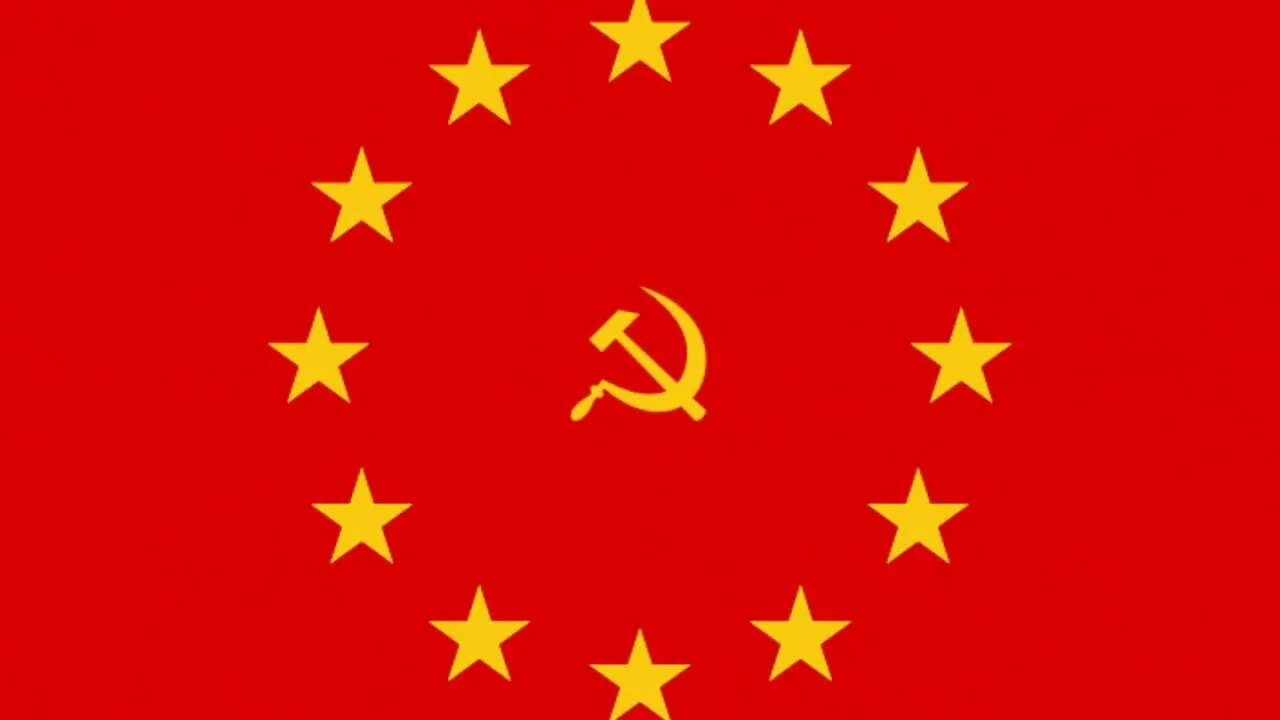Premium Only Content

European Union Collective – Christopher Story – Introduction 1.1
THE DIALECTIC OF THE DECEPTION
Christopher Story "died under mysterious circumstances" after writing this book. He was an adviser on intelligence matters to Prime Minister Thatcher and published Soviet Analyst for many years. In the opinion of many he was better informed than British and US intelligence organisations put together. This book is a daring analysis of the plans of two major players in the battle for Europe's destiny. One is Germany and the dream of a Pan-Germany. The other is Russia, which had plans since the Soviet era.
In our days, the EU is seen as an enemy of the nations it comprises, thus Christopher Story thinks. He is able to see a "German and Russian strategy to complete Lenin's World Revolution
https://www.amazon.com/European-Union-Collective-Member-States/dp/1899798013
https://www.goodreads.com/en/book/show/9976147-european-union-collective
Notes and references:
1. In his June 1992 Oslo Nobel Peace Prize speech, Gorbachev took care to refer to the Soviet Union in the present tense, despite its 'abolition' in December 1991.
2. Conversation between the Author and 'Viktor Suvorov', a 'defector' from Soviet Military Intelligence (GRU defector), in England in November 1999.
3. In the following Note, a specific lie by Gorbachev will be exposed. Gorbachev delivered his Nobel Lecture in Oslo on 6th June 1992. In 'his' book 'Memoirs' he affected a casual approach to the prestigious honour. Given that his remarks were of exceptional importance in laying down
the terms which the Leninists intended should characterise 'convergence', Gorbachev's display of nonchalance here suggests an attempt by the ghost-writing apparat to play down the fact that Gorbachev used this occasion to dictate terms to the West. In simple terms, the West was
to 'converge' substantively towards the East, whereas Soviet 'convergence' towards Western norms was to be essentially cosmetic only - as the West subsequently discovered to its immense cost but apparently without triggering any review of Western policy towards the 'former' Soviet Bloc. 'Gorbachev' writes on pages 549-560 of 'Memoirs': 'It was the custom for
the Nobel laureate to deliver the traditional lecture either at the award ceremony or within six months of the presentation. I was invited to give a lecture in early May 1991. However the political situation in our country had meanwhile become more critical, particularly after the January events in Vilnius and Riga'. [Armed troops had stormed the TV tower in Vilnius in
January 1991, leaving 15 dead; and there was also violence in Riga. Gorbachev had presided over both these atrocities, just as while on a visit to London he had personally ordered the attack on innocent demonstrators in Tbilisi in April 1989 (information given to the author personally by a well-informed British Conservative Member of Parliament - Ed.)].
4. 'Gorbachev On My Country and the World', Mikhail Gorbachev. Translated from the Russian by George Shriver, Columbia University Press, New York, 1999, pages 171-172. Gorbachev made this statement even though the Soviets never employed Gross National Product as
an economic measurement: their preferred measure of national output was Gross Material Product, an altogether different compilation. This is an example of the free-and-easy carelessness which typically characterises Soviet lies. The 'error' was ignored by Western analysts.
5. Ibid, page 172.
6. Ibid, page 172. However the Soviet Communists have never, at any stage since 1917, been concerned with 'the real and vital interests of our country and our people', since they have been concerned exclusively with amassing, consolidating and spreading their own global power worldwide, at the expense precisely of the Russian people and of those other peoples they have by various means subjugated.
7. According to 'Soviet Diplomacy and Negotiating Behavior: Emerging New Context for U.S. Diplomacy', House of Representatives' Committee on Foreign Affairs: A Study Prepared by the Senior Specialists Division, Congressional Research Service, Library of Congress, Volume 1, 1989, pages 418-420.
SPECIAL NOTE: Perpetuation of the Stalinist model to support the Leninist model. The information contained in the Special Note on page 5 illuminates a point which has escaped everyone, but which on reflection should cause no surprise. As indicated in the Introduction, Gorbachev presided over the dismantling of the Stalinist model, and preparations for the relaunch (for want of a better word) of the Leninist World Revolutionary model. The literature generated by the 27th Congress of the CPSU, over which Gorbachev presided, is heavily pregnant with Gorbachev's indebtedness to Lenin and Bolshevism. But, when it came to 'relaunching' the Leninist model in Russia itself, it proved necessary not merely to refrain from dismantling the Stalinist repression apparatus, but to expand the repression complex exponentially.
-
 25:17
25:17
Eugen Richter Audiobooks
2 years agoStalins Secret Agents – Evans & Romerstein – Chapter 10: The War Within the War
1.83K3 -
 2:34:02
2:34:02
Barry Cunningham
3 hours agoLISA COOK | ADAM SCHIFF | LETITIA JAMES | ARE THEY BEING SACRIFICED BY THE DEEP STATE?
53.5K24 -
 LIVE
LIVE
Flyover Conservatives
11 hours agoOnly 17% of Millennials Hit These 5 Adult Milestones—Why?; What If Childhood Trauma Is Behind Your Health Problems? - Dr. Troy Spurrill | FOC Show
363 watching -

HogansAlleyHero
13 hours ago💥CHASING DOPAMINE💥✅TRUMP SAYS BATTLEFIELD IS THE BEST✅
12.9K -
 1:57:40
1:57:40
MattMorseTV
4 hours ago $6.62 earned🔴Trump just SHATTERED the PROJECTIONS.🔴
34.3K23 -
 LIVE
LIVE
megimu32
3 hours agoOTS: From Star Search to Superstardom
76 watching -
 LIVE
LIVE
Joker Effect
1 hour agoInterviewing GREENMAN! Looks like he is coming to Rumble! Let's give him a warm welcome! REAL TALENT
436 watching -

Anthony Rogers
8 hours agoEpisode 380 - Is Pain All In Your Head?
7.35K2 -
 1:46:17
1:46:17
Glenn Greenwald
6 hours agoGlenn Takes Your Questions on Censorship, Epstein, and More; DNC Rejects Embargo of Weapons to Israel with Journalist Dave Weigel | SYSTEM UPDATE #505
106K6 -
 LIVE
LIVE
Jokeuhl Gaming and Chat
7 hours agoHelldivers 2 - Spreading Democracy w/ Ryker
40 watching